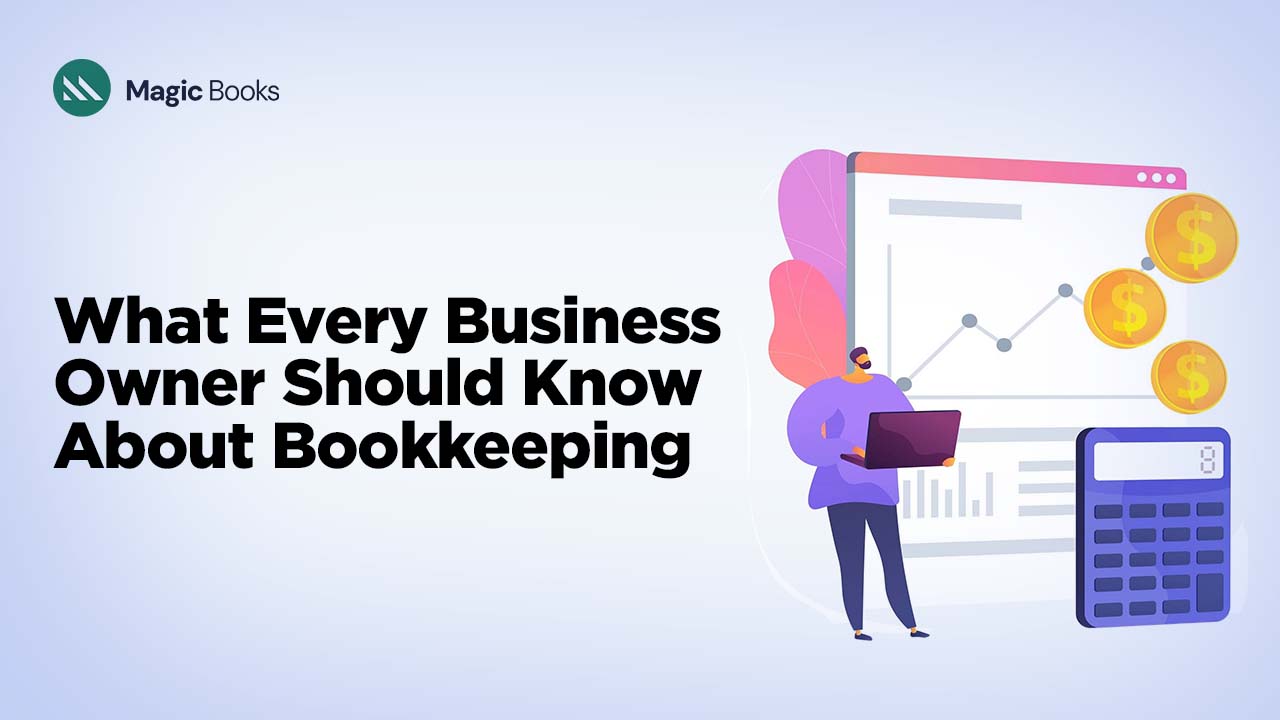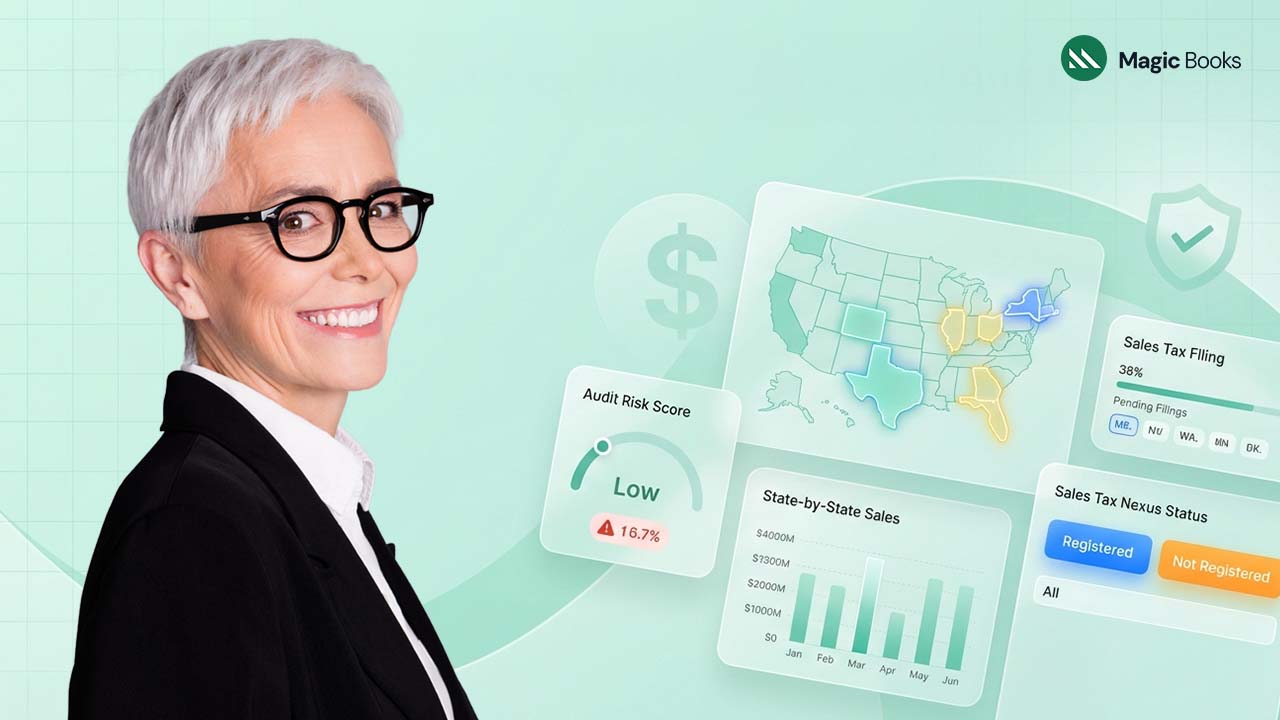If you are an avid reader of our blog (as you should be), you must know that we have talked so much about bookkeeping and its importance. You know that you can’t really run a healthy and successful business without having your books in order and a messy one can break the back of your business immediately. The key to identifying a good bookkeeping quality is to see all the company’s day-to-day financial records such as invoices and payroll documented perfectly. But we don’t live in a perfect world and as small businesses navigate the complexities of running their business in a highly competitive market, there is so much on their plate.
Calm down! We get it and the whole purpose of this blog is to give you a basic understanding of what good bookkeeping looks like so that even in complex situations, your financial health is maintained.
Bookkeeping is an often misunderstood profession. Some people think that it is all about just data entry. While historically speaking, bookkeepers conducted “basic data entry” tasks, this has been changing over the years, especially considering that, given the advent of artificial intelligence, most data entry jobs are expected to become automated.
Keep in mind our fellow readers (who aspire to be in the financial market) that the bookkeepers of the day should, therefore, be the controllers tomorrow. The controller is concerned with putting into effect internal control, making preparations for budgets, reporting of compliance, and the process of reporting transactions-the ownership of the process of firm’s financial reporting process. The data entry operators are increasingly becoming more of data architects who know all manners of data more profoundly than their traditional roles of interaction as well as how the firms’ data flow.
Now let us walk you through the process of bookkeeping.
The first steps in a bookkeeping process are:
There are some important steps in the bookkeeping process. It will also explain the basics of bookkeeping. Here are the essential seven steps to get your bookkeeping process:.
Step 1:
The basic thing to know about your finances is to acquire a bank account and distinguish your business costs from other personal expenses.
One reason is liability. You have to make more of a distinction between your personal and business finances when you run a corporation or an LLC. Thus, you can be personally liable for any of your company’s debts.
It is not easy on the account itself to intermingle personal and business expenses. In fact, it might even lead to unnecessary stress. It may also cause confusion during tax time. The worst part could be that the business expense gets lost in the account. For one, you miss a critical deduction.
Step 2:
There are two major bookkeeping methods, which are single-entry and double-entry bookkeeping.
Journal entries are recorded once as either expenses or income in single-entry. Here, on the other hand, assets and liabilities are kept separate. If you are just starting out or doing your books on your own, single-entry would probably be right for you.
A complex system of double-entry is considered. However, it is stronger and suitable to be used by established businesses. Any transaction is first recorded in a journal, using double-entry bookkeeping. Then each of the items is recorded twice, in the general ledger.
Most accounting software uses the double-entry system of accounting. If you ever decide to hire an accountant to keep your books straight, well, there they will undoubtedly apply for double-entry.
Step 3:
Every transaction you have to record in your books has to be accounted for. It’s what captures more deductions from your bookkeeper. When it’s time to get audited, it’s going to make your life much easier. How you classify your transactions is going to depend on your business and the industry. Essentially, there are five types of accounts which your transactions fall into-Assets, Revenue equity, expenses, and liabilities. Individual line items are subdivided into subcategories that are considered as accounts.
Now there is a choice of three kinds of bookkeeping tools, powerful though they are with experience to drive you to frustration unless you have little experience with bookkeeping or no time in which to learn, they do help, especially if your accountant turns to you and says, You’ve been using those improperly for the past year.
Step 4:
Every transaction you need to make has to be specified and entered into your books. It will make life easier for your bookkeeper if you get audited. It’s going to be worth talking over with a pro when you set up your system to be sure that the accounts you create match your industry expectations. They may match your CPA expectations too.
Step 5:
It is your duty to demonstrate the validity of your expense records. S you have to carry supporting documents of your data with regard to finance. That encompasses receipts and records. So, it is very much necessary to choose a storage system for your documents.
Step 6.
If this is a necessary or ordinary expense, you may still want to claim your deduction but need assistance in ordering where to deduct and not.
Step 7.
Small business owners have too much to do. Here, the risk is that bookkeeping easily becomes one of them. A way of avoiding that is to make a habit.
Then, if you have some months or years behind, get a bookkeeper to do catch-up bookkeeping.
Why so much fuss about bookkeeping anyways? If thats the question you had at this point, we are here to answer that.
Why Bookkeeping Matters:
1. It’s required for you to fill out your tax return. You should know your total income and total expenses to calculate that. And only keeping an accurate up-to-date set of books will let you know that for sure.
2. The only way to know whether your small business is financially healthy would be by putting your books together and producing financial statements. Do you make any sales? Do you still have too high a freight bill? Are you certain that you can afford the payroll next month? Does cash flow seem to grow or shrink? To really know, just begin keeping accounts.
3. An accurate set of books can keep a better track of your tax deductions- expenses you can subtract from your taxable income. The more information you can give your CPA at tax time, the more deductions you should be able to claim, so the higher your return should be. The IRS also has pretty stringent recordkeeping requirements for any deductions you claim, so having your books in order can remove a huge layer of stress if you ever get audited.
4. If you’re going to borrow money from people other than friends and family, you need to get your books together. That will let you produce financial statements, often a prerequisite for getting business loans, lines of credit from banks, or seed investment. They will want to know the state of your business finances before handing over money to you. They cannot do that without examining revenue, cash flow, assets, and liabilities and will be looking for these items in your balance sheet, income statement, and statement of cash flows.
5. One can correct mistakes faster If you wait to reconcile or get your finances in order until the end of the year, you’re going to be buried in paper at tax time and still won’t know whether you or the bank made the mistake. You catch that erroneous overdraft today rather than six months down the road when it is too late to bring to anyone’s attention.
Ugh! Can I just hire a bookkeeper already? You can but you should look for them, right?
Here is what you should look for them or as GenZ says “The Green Flags”
Qualities of Good Bookkeepers:
Business owners look for some green flags before hiring a bookkeeper.
They require someone who can appreciate the larger scheme of things. Though bookkeepers are highly fussy about details, they must appreciate how these details are part of the greater whole of a company’s financials. Details, devoid of any comprehension or analysis of the bigger scheme of things, are nothing more than those details. Details supported by comprehensive comprehension and analysis communicate a company’s financial story. One of the best ways to screen for a big-picture understanding in an accounting candidate is by asking them to give examples of issues and how they went about them.
Indeed, one who can walk into the problem and, with confidence, outline the solution step by step probably has the expertise and analytical capabilities needed for the job.
And if he dodges the reply, that itself will also tell whether he has no big-picture knowledge. Another green flag that can come from accounting candidates is building and maintaining a cycle of tasks they can regularly face. This candidate should be able to articulate which tasks fall into the monthly accounting cycle, how they will correctly finish those tasks for accurate financial reporting, and what processes they’ll put in place to catch and rectify any mistakes that may occur. Regarding errors, these usually occur due to human error. A successful bookkeeper who can design and take advantage of lots of automation, including software integrations, will help a business owner avoid errors. The great bookkeeper will prepare processes that are designed regularly to review, find, and correct mistakes that will obviously happen. Lastly, business persons should seek a bookkeeper who can communicate well. Financial statements are quite complex, and most of the time, CPAs and CFOs speak in different tongues than business owners. Finally, a bookkeeper who can break down in plain talk the complexity of financial statements will be able to equip the business owner with all the information needed to make good financial decisions for the business and also ensure other members of the finance team, including the CFO and CPA, get their reports as needed for their functions.
Bookkeeping is one of those necessary acts that could help you compare profit from this year to last. Now, because you have a clearer financial view of the matter, you make more informed decisions. You will be in a hurry many times due to your time schedule for your bookkeeping. For such occasions, you should employ a professional to manage small business bookkeeping basics. And so, you obtain your financial statements, helping you to make smart and profitable decisions.



